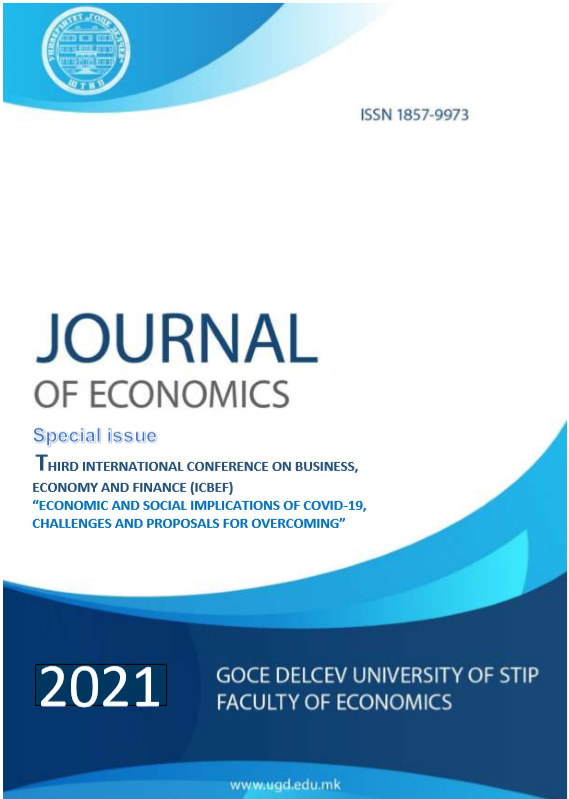The Challenge of 21st Century Leadership: The Transition from "I" to "We"
DOI:
https://doi.org/10.46763/JOE2160022kKeywords:
Change management, management, home office, organizationAbstract
The exponential growth of science, in all spheres of modern life, is a big challenge for
every person, in order to find a way to follow these changes. The belief in the
economy, politics, leading elites, as well as in the media is probably at the lowest
possible level, not only nationally and regionally, but also globally. Using different
communication channels (like social networks as the simplest communication
channels) each stakeholder can give negative reviews and comments about an
organization. In such difficult and challenging business conditions, the usual methods
and theories of management do not work best at all levels of cooperation and action.
The reason for this probably lies in the fact that while the world is changing rapidly,
transforming itself into new forms, management as a science fails to follow in parallel,
the steps of all the changes and processes caused by globalization. The competition
for talents in the labor market today, requires additional effort from the management
of organizations. If we take into account that fact (from many others), we can clearly
see that a "new" time is coming in which managers need to be constantly
(re)inventive, both in terms of themselves, as a person, but also in term of managing
their organizations, too. For those who want to create the necessary change and adapt
to modern functioning, this "journey" can be a significant evolution on an individual,
collective and global level filled with many innovations and challenges. The pandemic
that brought a major crisis situation at all levels, on the other hand, led to changes in
the management methodology. All these crisis situations put the leaders to a huge
test to prove, which of them is the real manager in bad times so as in good times, and
which remains even a step behind or down, because he cannot face the challenges
first as a person himself, and then on the other hand to adapt the employees to the
newly imposed working conditions, without disturbing the humanitarian aspect. The
"new" time proved to be a time of significant changes that dictate a different culture of
living, different experiencing things, re-examining all the trends that are aimed at a
kind of growth and development of the person, that steps with enormous speed
through all changes and processes, as a being, a person, a motivator, an innovator, a
manager, to finally realize that until the "I" didn’t turns into the "WE", we cannot talk
about any leadership, in context of all the challenges, that only the right manager can
face every day.


